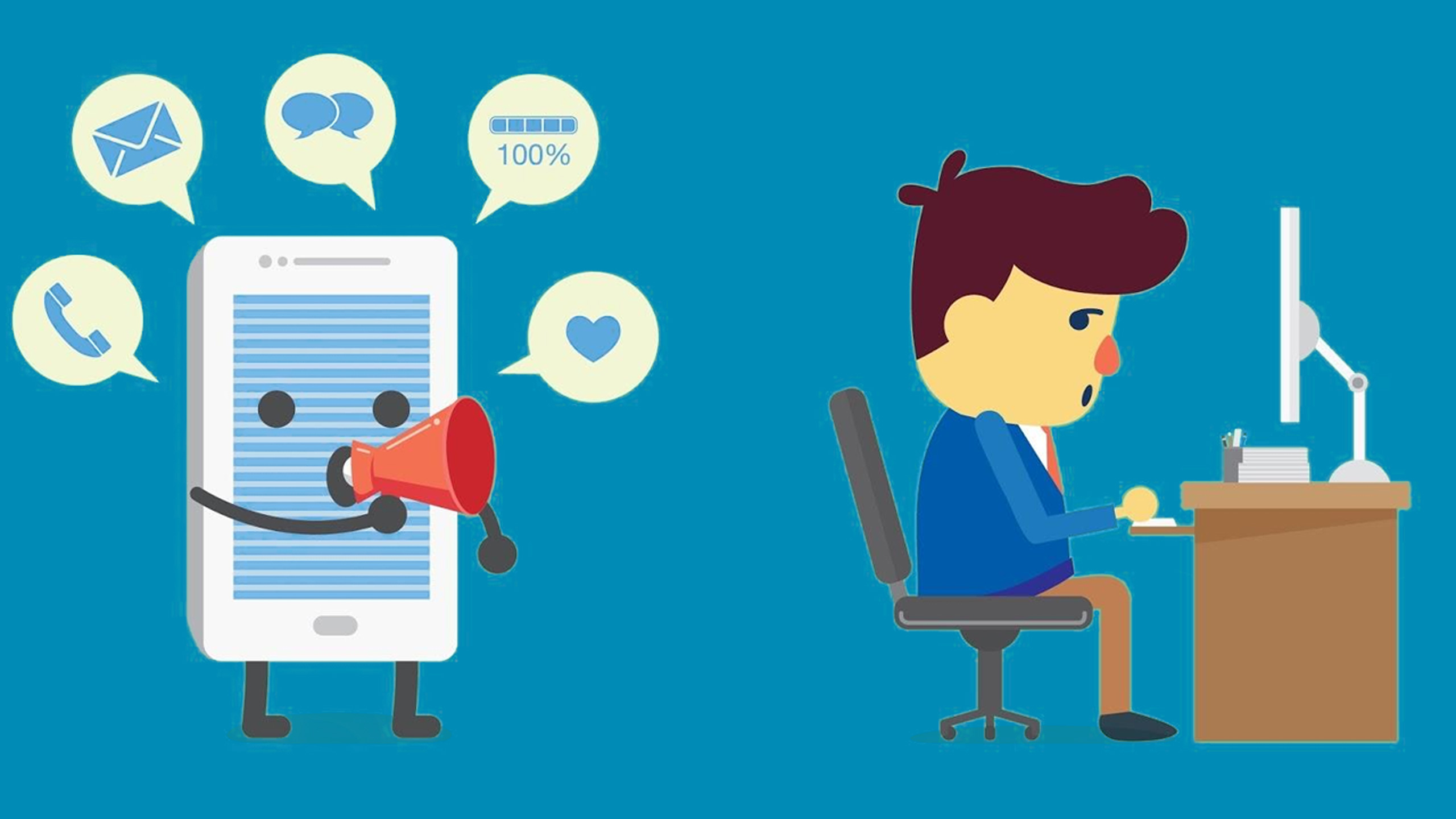Notification distraction is an extreme disadvantage of technology. A ding on your phone can ruin any moment, whether you’re socializing with friends or doing a challenging job. It’s past time to deal with the notification distraction. Notifications create distractions on concentration.
Joanie (not her actual name), a clinical psychologist in London, has three laptop computers for work. When you’re scattered over many NHS services, this isn’t unusual. She reminds me of Paul Hardcastle, the 1980s synth king, who used to flit between keyboards while playing on Top of the Pops.
Except for the times when he wasn’t rudely interrupted by unexpected notifications. “This automated device called Netpresenter player comes on when I log on to one laptop,” she continues. It’s a ticker tape, like one of those moving bus stop advertisements.”
She stops doing it since she has to focus on preparing notes for her next meeting. However, it continues reappearing with obnoxious alerts. “
I was in the midst of a meeting when it began playing music and a video – normally stuff like, ‘Don’t forget to wash your hands properly,’ or, ‘Hey, we’re all gathering for a webinar on employee health in half an hour.'” Joanie claims that if her job was easy to do, she would be happier.

We’ve spiraled into notifications hell as more and more aspects of our lives are handled online, from banking to entertainment to health. Life may seem like one long stressful game of Space Invaders on a bad day.
You open a smartphone to check the weather, only to be bombarded with intrusive messages – some fascinating (you got paid!) and others annoying (a stupid post on your neighborhood WhatsApp group, a software update…), and before you know it, you’ve completely forgotten about the weather.
Working with several electronic internet gadgets is a mixed-race lady wearing glasses. A freelance businesswoman holds a tablet and a smartphone and sits at a table with a laptop and charts on the screen. The theme for multitasking Model poses for the camera working with several electronic internet gadgets is a mixed-race lady wearing glasses. A freelance businesswoman holds a tablet and a smartphone and sits at a table with a laptop and charts on the screen. The theme of multitasking and telecommuting
Scrolling through YouTube’s never-ending series of video explainers about turning off alerts gives you a glimpse into this perplexing reality: “How to stop notifications in Google Chrome,” “How to TURN OFF ALL NOTIFICATIONS on ANY iPhone,” and “How to TURN OFF ALL NOTIFICATIONS on ANY iPhone.” PlayStation, Microsoft Teams, Facebook, Garmin smartwatches, and so on, since this is an ever-changing environment that we can’t keep up with.

Joanie is a habitual disabler of alerts, but she may benefit from keeping an eye on the Teams and Outlook ones. Her primary computer has lately begun to run Microsoft Teams, which connects professionals who hotdesk or, since Covid, work from home. As she unlocks it, I hear a sophisticated chime that reminds me of airports, where gate closures for aircraft that aren’t yours are often announced. That, she claims, is the “activity” bell, which signals announcements that may or may not be pertinent.
Sophie Leroy, an associate professor at the University Of Washington Bothell School Of Business, specializes on work interruptions, but many of her results are applicable to personal life as well. She categorizes alerts into two groups: “Notifications like work emails, where you are expected to provide an answer immediately, because of corporate norms, versus things that may not require a switch of your attention, like the Wall Street Journal, or your favorite store, and then you have to decide whether to switch or not.” Both are difficult. It might be unexpectedly exhausting to get a text from a buddy that you don’t have to read right away.
“‘OK, what does my buddy want?’ you say. There’s uncertainty, and we’re not very good at dealing with it.” Ignoring it is “cognitively challenging,” according to Leroy. Self-control is necessary, and if it is required multiple times every hour, your brain will grow weary.
If your present work is too onerous, you’ll need to take a break to scratch some of your notifications itches. “When we utilize the resource of self-control, it depletes with time, and it’s going to be difficult to ignore those messages,” says Leroy, even if you’re extremely eager to keep working.
All of this means we’re more likely to arrive at our clock-off time without having completed our work, which then eats away personal time – “recovery time,” as Leroy puts it. “And that has a direct influence on mental health and wellness because there is no time to disengage.”




